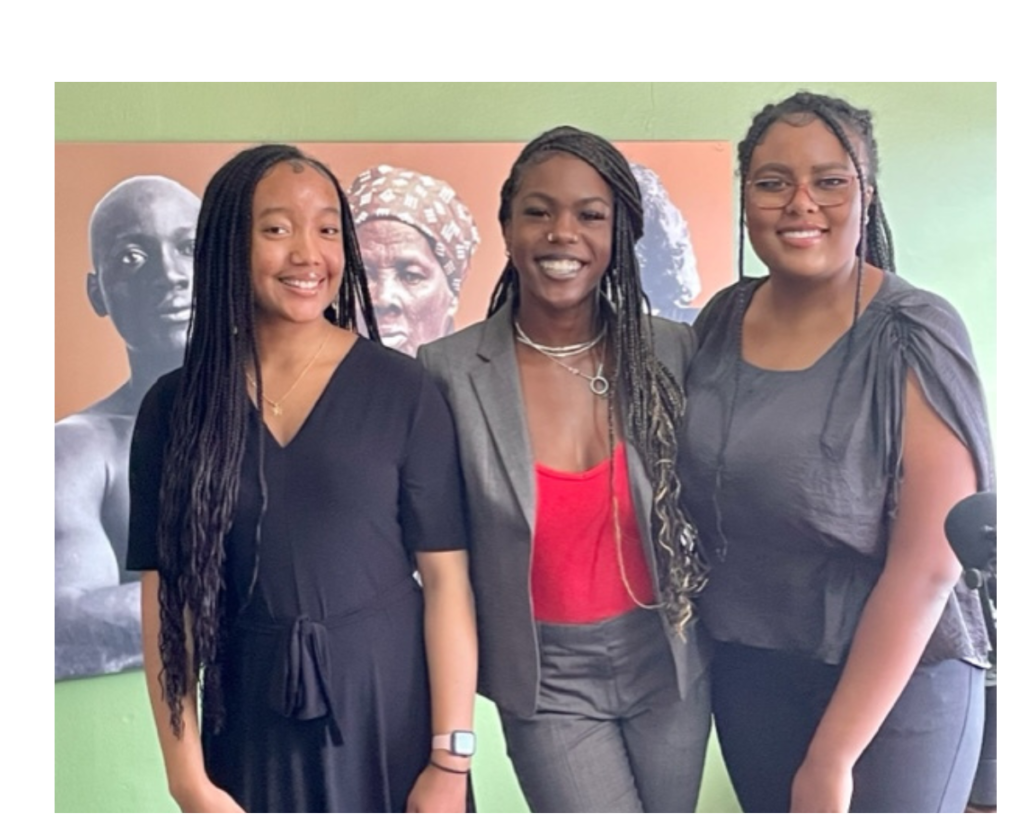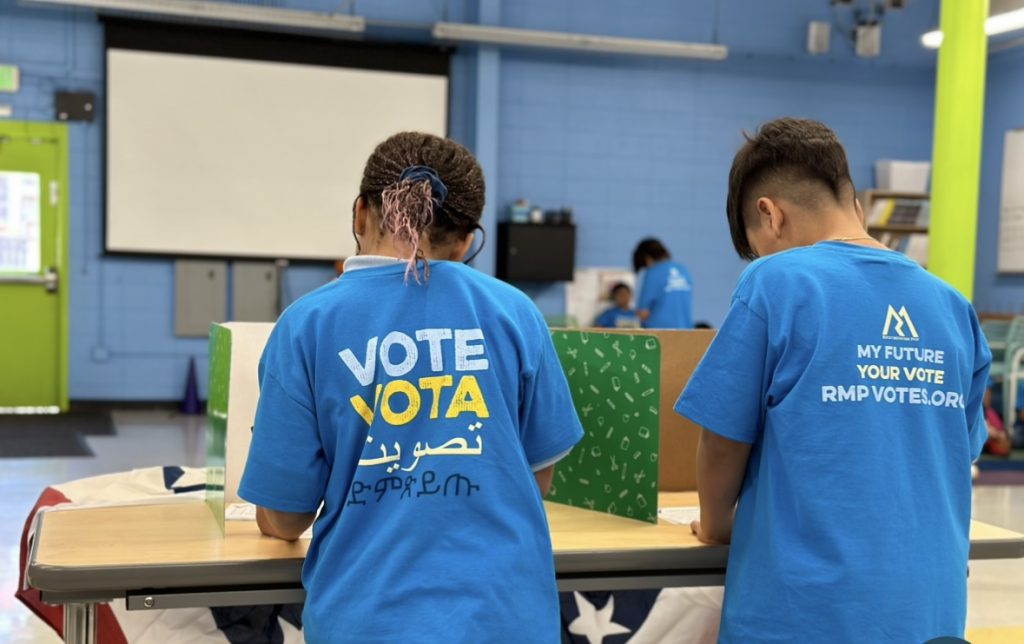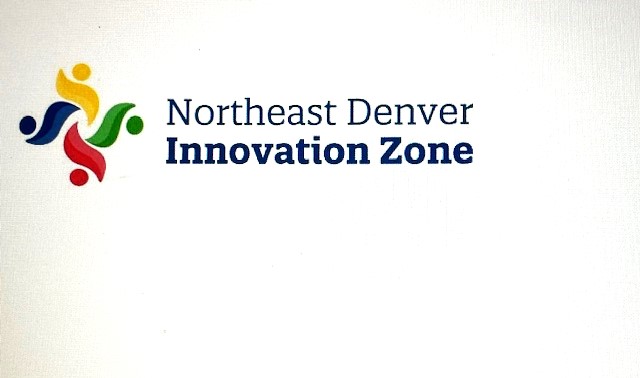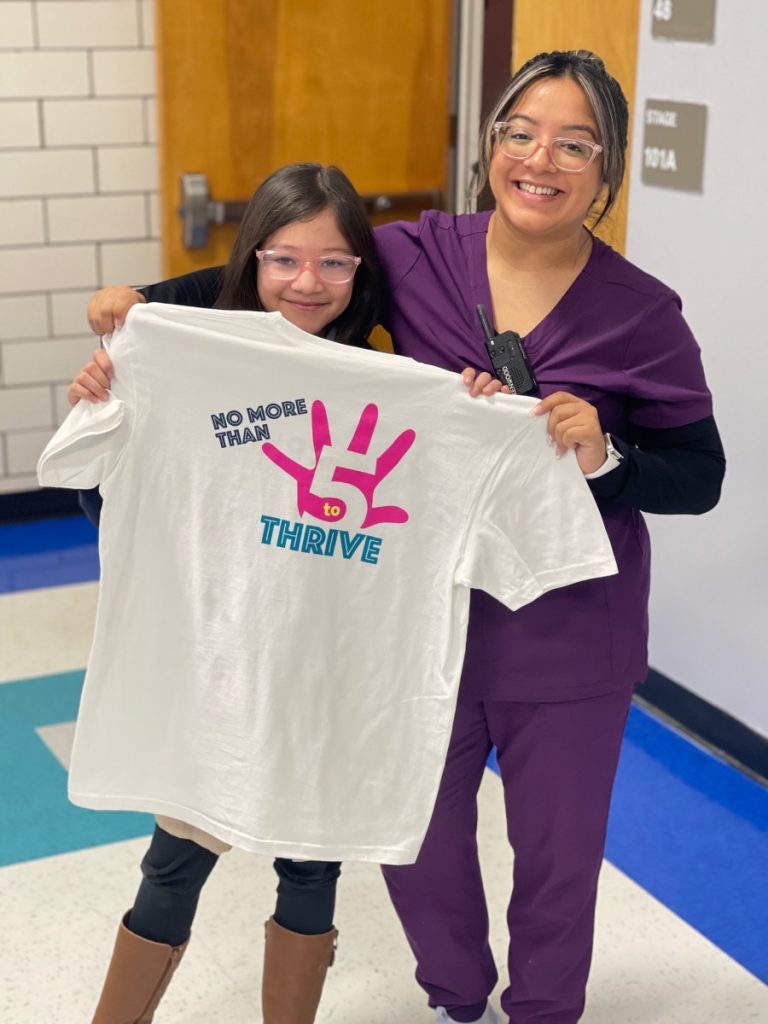Students and community supporters Wednesday widened their fight to retain rights to “Know Justice, Know Peace” from their federal court lawsuit against Denver Public Schools to winning in the court of public opinion.
Denver school board members “have to know this is the wrong thing to do, and this will not end until it gets made right,” said Jeffrey Kass, the attorney representing students. “Now is the time to rally the community and tell DPS to do the right thing.”
The students held a news conference at Brother Jeff’s Cultural Center in Five Points, where the four at Dr. Martin Luther King Jr. Early College middle and high school created their racial justice podcasts in 2020.
They are suing the district in U.S. District Court to retain the trademark rights to the “Know Justice, Know Peace” podcast. As first reported in Boardhawk, the dispute started when DPS threatened to sue the students and the former DMLK principal if they did not withdraw their trademark claim.
“We should be standing in awe of these teenagers rather than suppressing them,” Kass said.
Three of the students at the news conference – Kaliah Yizar, Dahni Austin and Jenelle Nangah – originated and hosted the podcast as part of a larger successful student-led campaign at their school to expand history and other curriculum to better represent Black, Latino and indigenous communities.
Jenelle, whose parents moved to the United States from Cameroon in West Africa, said she had a rough time as a first-generation Black student adjusting to school. The podcast “empowered me so much and carried me through a lot of difficult times … In the 13 years I’ve spent in DPS, I’ve learned more about how to be professional, how to present myself as a young Black lady, how to respectable, how to be responsible than I ever knew while I was in school.”
Kaliah said the hardline resistance from administrators is ironic given their rhetoric about their commitment to supporting all students.
“They want to say, we support student equity, we support students taking initiative, etc. (but) the message to students in DPS and everywhere is that you can do what you want, but don’t go too far.”
The podcast series started in July 2020 a few weeks after Minneapolis Police killed George Floyd, and the students said it evolved from a focus on racial injustice to other issues impacting the Black community.
“We were offering solutions, not just bashing DPS,’’ Kaliah said.
She and Dahni, both 17, are no longer attending DMLK because they achieved enough high school credits for a diploma and are now studying at Aurora Community College. Jenelle graduated and is attending cosmetology school. The fourth student, Alana Mitchell, was unable to attend the news conference.
District officials have declined to comment on the dispute, citing pending litigation. However, the students have gained the strong support of Auon’tai Anderson, vice president of the school board.
“I stand with the girls from Dr. Martin Luther King, Jr. Early College – I witnessed the hard work of these young ladies first hand,” Anderson said in a written statement on Tuesday, the day after district officials briefed the school board on the legal fight in a closed executive session.
“I watched them earn every accolade and award. I sponsored their resolution, and I believe that Denver Public Schools is ethically wrong. I will not be complicit in this reckless spending of taxpayer dollars. At a moment where an investigation has found the district guilty of institutionalized racism, growing achievement gaps and declining enrollment, this should be the last thing we are putting resources toward,” Anderson said.
A district administrator met with students and community members more than two weeks ago, but no agreement was reached. In a “cease and desist” letter, DPS Deputy General Counsel Jennifer Collins cited federal law in arguing that the district owns the rights because students used DPS resources, equipment and staff to produce their work.
Kass said that argument is flawed because students are not employees. He compared that argument to a school trying to appropriate student-produced art or music, which they do not and cannot.
The district also has hired an out-of-state attorney to pursue the trademark rights, prompting Jenelle Nangah to comment: “If DPS has to go to this trouble to hire an outside lawyer, then we must be doing something right.”




